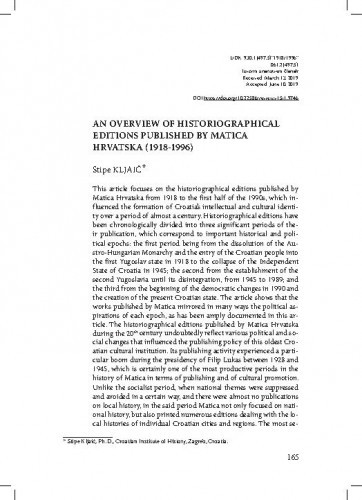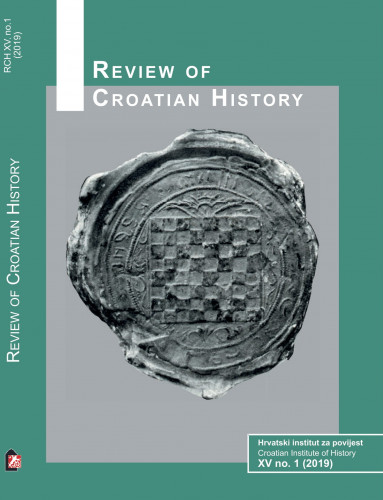This article focuses on the historiographical editions published by Matica Hrvatska from 1918 to the first half of the 1990s, which influenced the formation of Croatia’s intellectual and cultural identity over a period of almost a century. Historiographical editions have been chronologically divided into three significant periods of their publication, which correspond to important historical and political epochs: the first period being from the dissolution of the Austro-Hungarian Monarchy and the entry of the Croatian people into the first Yugoslav state in 1918 to the collapse of the Independent State of Croatia in 1945; the second from the establishment of the second Yugoslavia until its disintegration, from 1945 to 1989; and the third from the beginning of the democratic changes in 1990 and the creation of the present Croatian state. The article shows that the works published by Matica mirrored in many ways the political aspirations of each epoch, as has been amply documented in this article. The historiographical editions published by Matica Hrvatska during the 20th century undoubtedly reflect various political and social changes that influenced the publishing policy of this oldest Croatian cultural institution. Its publishing activity experienced a particular boom during the presidency of Filip Lukas between 1928 and 1945, which is certainly one of the most productive periods in the history of Matica in terms of publishing and of cultural promotion. Unlike the socialist period, when national themes were suppressed and avoided in a certain way, and there were almost no publications on local history, in the said period Matica not only focused on national history, but also printed numerous editions dealing with the local histories of individual Croatian cities and regions.
Sažetak

 Review of Croatian history : Revue für kroatische Geschichte = Revue d'histoire croate : 15,1(2019) / editor-in-chief, Chefredakteur Mario Jareb.
Review of Croatian history : Revue für kroatische Geschichte = Revue d'histoire croate : 15,1(2019) / editor-in-chief, Chefredakteur Mario Jareb.